The G20 member nations published an epic 10,000-word statement on Wednesday at the conclusion of their annual summit stating that “most” members “strongly condemned” Russia’s invasion of Ukraine and opposing sanctions on food and fertilizer products.
Russia is one of the 19 nations, along with the European Union, in the G20, and presumably in the minority that did not “strongly condemn” itself. The statement in opposition to sanctions on fertilizer products, in particular, is relevant to the ongoing invasion of Ukraine as Russia is one of the world’s most prolific fertilizer exports.
The statement also emphasized that the G20 was “not the forum to resolve security issues” and so it was not appropriate for participants to take a stand on the war.
The missive, which dwelled on climate change and universal health care access more than the war in Ukraine, appeared to be a compromise between nations that sought to use the G20 as a platform to support Ukraine and those who preferred to discuss other topics, particularly food security and economic development. Host nation Indonesia repeatedly urged member states prior to the summit to not monopolize discussion at the venue with Ukraine debates, though President Joko Widodo, who had done most of the urging personally, also chose to invite Ukrainian President Volodymyr Zelensky to issue a statement to those assembled. Unlike Russia, Ukraine is not a G20 member nation.
Zelensky issued a closed-door statement to heads of state at the summit. Russian leader Vladimir Putin chose not to attend the summit, sending Foreign Ministry Sergey Lavrov in his stead.
The Kremlin, through official spokespersons, said it was satisfied and pleased with the statement out of the G20, as it did not categorically condemn the invasion and, it claimed, accurately represented a diversity of viewpoints.
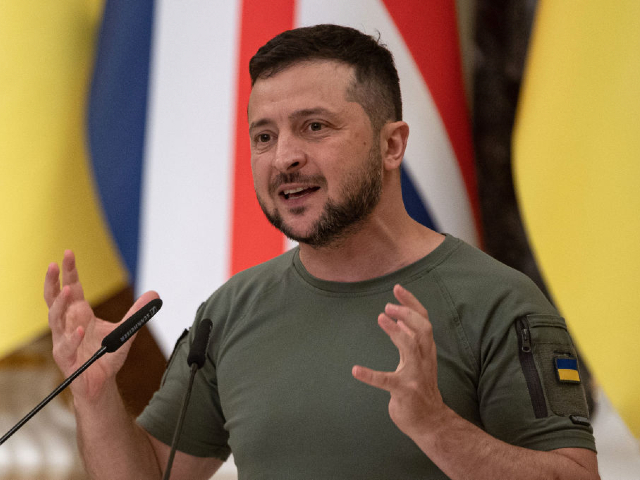
Ukrainian President Volodymyr Zelensky speaks a press conference on August 24, 2022 in Kyiv, Ukraine. (Alexey Furman/Getty Images)
“This year, we have also witnessed the war in Ukraine further adversely impact the global economy. There was a discussion on the issue,” the G20 statement narrated. “We reiterated our national positions as expressed in other fora, including the UN Security Council and the UN General Assembly, which … deplores in the strongest terms the aggression by the Russian Federation against Ukraine and demands its complete and unconditional withdrawal from the territory of Ukraine.”
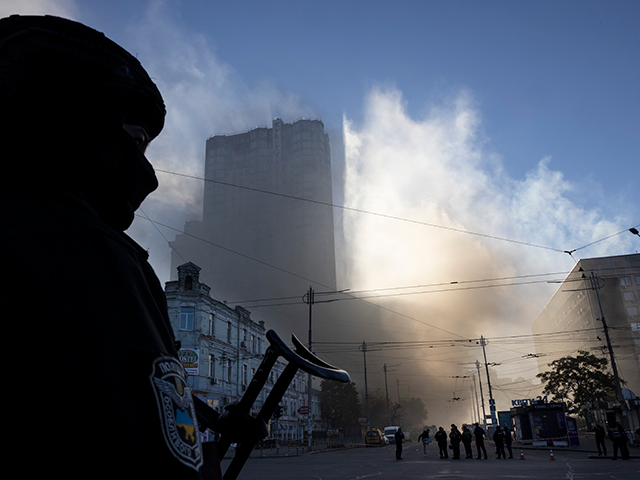
A member of the Ukrainian police force stands guard next to smoke as Kyiv is rocked by explosions during a drone attack in the early morning on October 17, 2022 in Kyiv, Ukraine. (Paula Bronstein /Getty Images)
“Most members strongly condemned the war in Ukraine and stressed it is causing immense human suffering and exacerbating existing fragilities in the global economy,” the statement observed, later adding, “There were other views and different assessments of the situation and sanctions.”
“Recognizing that the G20 is not the forum to resolve security issues, we acknowledge that security issues can have significant consequences for the global economy,” the Ukraine portion of the statement concluded.
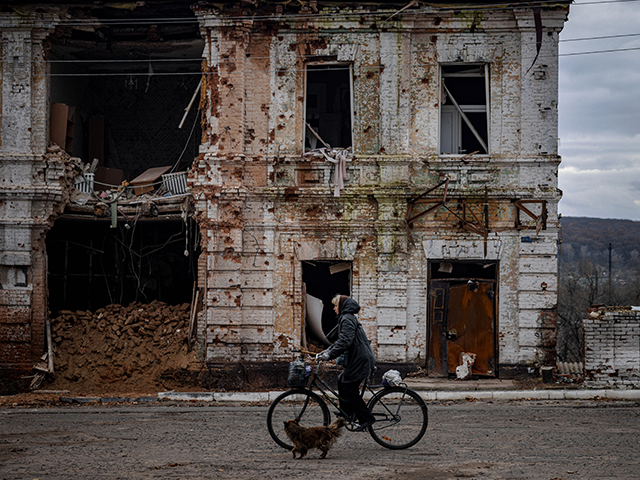
A woman rides a bicycle past a damaged building in the town of Kupiansk on November 3, 2022, Kharkiv region, amid the Russian invasion of Ukraine. (DIMITAR DILKOFF/AFP via Getty Images)
Elsewhere in the extensive document, the G20 generally asserted that “the use or threat of use of nuclear weapons is inadmissible” – a talking point commonly used by both sides of the Ukraine invasion. The statement did not address the war itself again, but returned to the topic of Ukraine generally in the context of food security. Ukraine is one of the world’s most important grain exporters, while Russia sells much of the world’s chemical fertilizer used in farming. Russia’s invasion has posed a tremendous threat to the food supplies of Ukraine’s top clients, particularly nations in the Middle East and Africa.
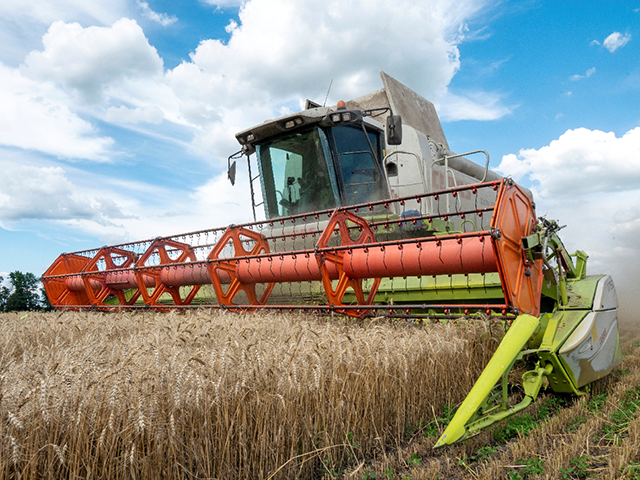
Farmers harvest a wheat field in the Ukrainian Kharkiv region on July 19, 2022, amid Russian invasion of Ukraine. (AFP)
“We are deeply concerned by the challenges to global food security exacerbated by current conflicts and tensions,” the countries asserted together. “We therefore commit to taking urgent actions to save lives, prevent hunger and malnutrition, particularly to address the vulnerabilities of developing countries, and call for an accelerated transformation towards sustainable and resilient agriculture and food systems and supply chains.”
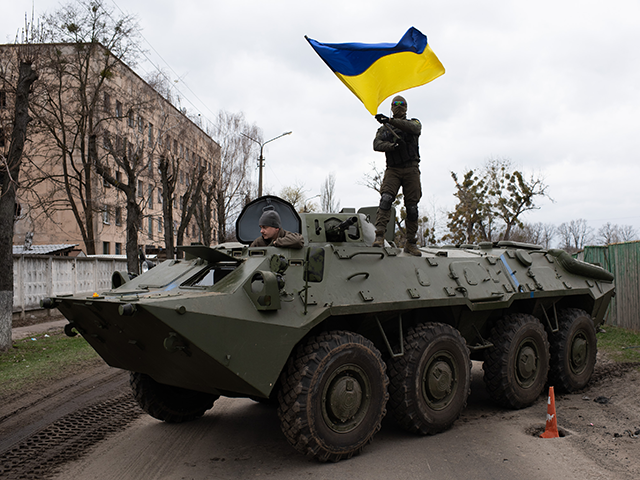
Ukrainian soldier waves Ukrainian national flag while standing on top of an armored personnel carrier (APC) on April 8, 2022 in Hostomel, Ukraine. (Alexey Furman/Getty Images)
The statement also rejected the use of sanctions, most prominently used against Russia by America and the West.
“We continue to support the carve out of humanitarian activities from sanctions and call on all nations to support this aim, including through current efforts at the UN,” the document read. Elsewhere, the parties highlighted “the importance of not imposing export prohibitions or restrictions on food and fertilizers.”
The rest of the statement focused heavily on “biodiversity” and “climate change,” urging greater investment on the part of wealthy nations to supposedly help poor nations “transition” away from reliable fuel sources. The G20 also emphasized the distribution of coronavirus vaccine products, which it referred to with the Chinese government’s preferred term “global public good,” as a primary objective of the coalition.
“We remain committed to a human-centred, inclusive, fair, sustainable approach that leads to greater social justice, decent work, and social protection for all,” the countries concluded.
Russian presidential spokesman Dmitry Peskov said the Russian government had no complaints about the statement.
“Different approaches and different views on the issue were taken into account and recorded in the declaration,” Peskov told reporters on Wednesday. “As for the rest, undoubtedly, our experts – both Foreign Ministry officials and our [G20] Sherpa [Svetlana] Lukash – made great efforts to ensure the development of such a balanced document.”
The Russian news agency Tass reported that, according to Joko Widodo, “the provision on the conflict in Ukraine had triggered an extremely heated debate, lasting until midnight.”
Jokowi, as the Indonesian president is most commonly referred to, publicly expressed concerns before the conference of the potential that the Ukraine issue had of overpowering other items on the agenda.
“The G20 is not meant to be a political forum. It’s meant to be about economics and development,” the Financial Times quoted the president as saying last week.
Jokowi was, however, the one who chose to invite Zelensky, potentially resulting in Putin choosing not to attend. Jokowi had inserted himself into the conflict over the summer by visiting both Kyiv and Moscow in quick succession, claiming that his nation’s constitution required from him active efforts to resolve the dispute.
“The Indonesian constitution mandates to contribute to the creation of world peace. It is in this context that I visited Kyiv and Moscow,” the president said in Ukraine.
Jokowi also appeared to be the driving force behind the emphasis in the G20 statement on ensuring food and fertilizer supplies.
“Don’t underestimate the problem of fertiliser,” the Indonesian president said in his address to the summit. “If we don’t immediately take steps to ensure sufficient availability of fertiliser at an affordable price, then 2023 will be a more dismal year. The current high food prices could worsen by becoming a food supply crisis. Fertiliser scarcity will cause crop failure in various parts of the world.”
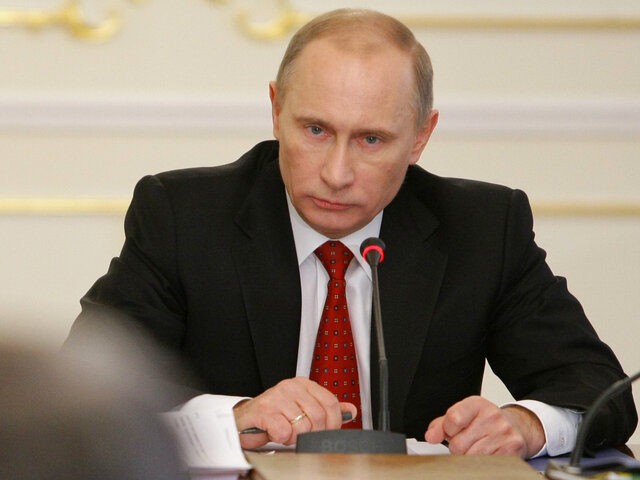
COMMENTS
Please let us know if you're having issues with commenting.